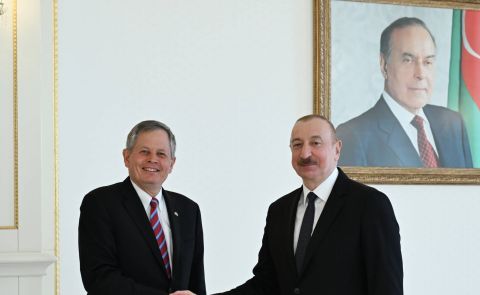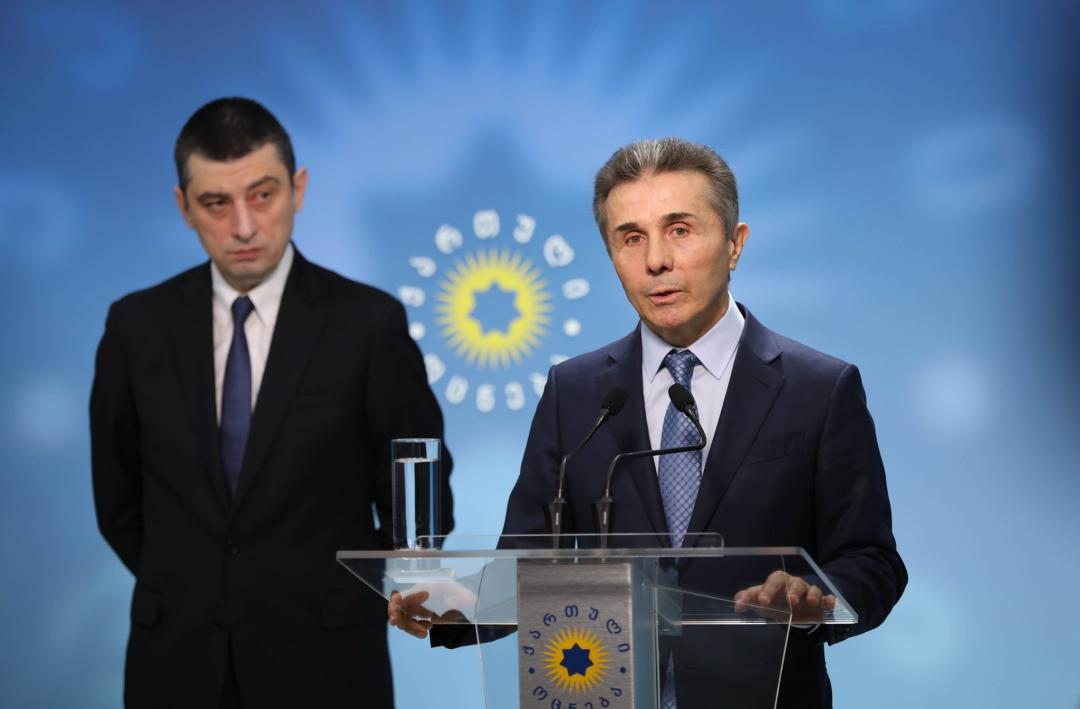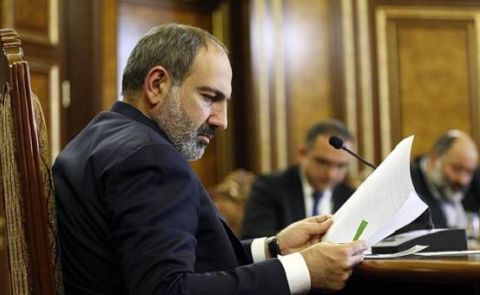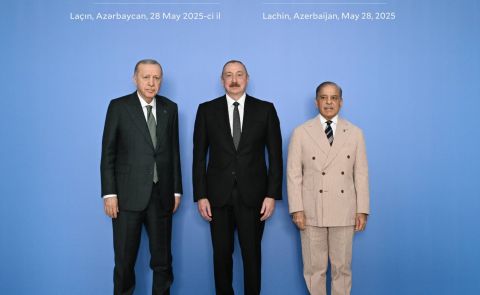
Political crisis in Georgia: further resignations within the ruling bloc, protester demands and reactions

Following the failure to adopt the bill on proportional elections (Caucasus Watch reported), the political crisis in Georgia continues with further resignations within the ruling bloc, new demands by the protesters and domestic and international reactions.
Mariam Jashi, head of the Parliament’s Education, Culture and Science Committee joined the 7 parliamentary members who resigned a day earlier. “I will always be proud of the initiatives and historic decisions which have been made under the Georgian Dream leadership. However, it was a principal issue and I was unable not to make the decision,” she said. She was joined by Giorgi Begadze, who was the 9th member to leave the ruling bloc. “I was confident that we would have managed to keep the promise that we had given to [our] population and the international community! Taken the existing reality into account, I have to make a very difficult decision,” he wrote on Facebook.
Beside the resignations within the Georgian Dream party, parliamentarians from the coalition Conservative party also decided to leave the ruling bloc. Leader of the party Zviad Dzidziguri, who is also a vice parliament speaker, said that the “40 ruling party MPs, who refused to vote for the bill, have [forced] us make the decision.” He stated that the Georgian conservatives “always played a team game, however, we are not going to stay there where politically and morally unjustified decisions are made.” Dzidziguri was joined by his party colleagues Giga Bukia and Nino Goguadze, while the remaining three parliamentarians from the Conservative party have yet to announce their decision to leave the ruling bloc.
The protesters came with three new demands after the bill adoption failed. Giga Makarashvili, a civil activist, stated that the political opposition and civil sector have come up with a 3-step action plan. These three points were: 1) the forming of a temporary government; 2) everyone except the Georgian Dream chairman Bidzina Ivanishvili can be members of the temporary government; and 3) that the temporary government would organize free elections in the country. Beside the protest in the Georgian capital, Tbilisi, there is also a protest in Kutaisi, the capital of the Imereti region.
United National Movement (UNM) members were also amongst the protesters. The UNM released a statement, warning that a large-scale rally will be held on 17 November, which aims to “end Ivanishvili’s government in [the] shortest time [possible]” and “start to develop… democratic principles in Georgia”. “We will therefore use all the methods of protest and resistance recognised by the Georgian constitution and international law,” read the statement.
The Alliance of Patriots parliamentary MPs also announced starting “endless protest rallies” on 17 November. Calling on everyone and, in particular, their supporters, the party leader Irma Inashvili said “we should act in a calm, clever manner… unite”. She also called on supporters of other opposition parties to join their rally “[no matter] the political preferences”. “We demand fair elections in this country and with its today’s decision the Georgian Dream has deprived the Georgian people of the right to fair elections, which we cannot let happen,” Inashvili stated.
The ex-president of Georgia Giorgi Margvelashvili, Former Secretary of the Security Council Davit Rakviashvili, and former Prime Minister Giorgi Kvirikashvili joined the protesters. “14 November of the Georgian Dream – a decision devoid of rationalism, political pragmatism and statehood in the current political situation - another step towards the government’s delegitimization and public and political polarization - a missed opportunity,” wrote Kvirikashvili on his social media accounts.
After the bill failed, the EU ambassador to Georgia Carl Hartzell held a meeting with the Georgian Dream representatives at the central office of the party. “I said yesterday that voting [against the bill would] create risks for [an] increase [in] polarization. We already see signs of that,” he stated after the meeting. According to the EU Ambassador, the outcome of the voting was regrettable but finding a way out was important. He said he also planned to hold discussions with oppositional politicians.
The US embassy in Georgia also voiced their disappointment with the failure to adopt the bill. “We are disappointed, therefore, that despite support from opposition parties, an insufficient number of Georgian Dream parliamentarians supported the required constitutional amendments in today’s vote. We again stress the critical importance of the passage of electoral reform legislation that incorporates the recommendations of international and local observer organizations for addressing shortcomings noted in the 2017 and 2018 elections in order for the next parliamentary elections to create a more level playing field for advancing Georgia’s political pluralism,” read the statement of the embassy. Congressmen Adam Kinzinger of Illinois, who is the co-chair of Group of Georgia’s Friends in the US Congress also voiced his disappointment. He said that he was “shocked” when he learnt about the decision made by the parliament. “The package was the commitment taken before the international community and the Georgian people. I call on Georgian official[s] for immediate resumption of negotiations and approve the draft-package of the proposed constitutional changes,” he stated.
The co-rapporteurs of the Parliamentary Assembly of the Council of Europe (PACE) also were disappointed that the bill was not adopted. “We deplore the lack of support for these amendments. The introduction of a proportional system has been called for by all stakeholders for more than a decade, and its introduction was long overdue. In the light of the clear consensus by all stakeholders on the need to introduce this system before the 2020 parliamentary elections, the failure of the amendments to pass is incomprehensible. This is a step backwards,” read the statement.
The economist Givi Bedinashvili believes that the current political crisis in Georgia would also impact the Georgian economy. “It is unclear for economic experts whether the majority will support the budget amid the differences in the parliamentary majority. If the budget is not approved, the President has the right to dissolve parliament and hold snap elections,” he said. He thinks that at times like this the country is losing investments, as no business wants to invest in an environment where the political situation is unstable. “Our country was not able to get rid of rallies. The people themselves should try to control the government not by rallying but by voting. That is the only way to create the desired business climate for foreign investment,” he added.
Davit Usupashvili, former speaker of Parliament and founder of Development Movement, sees the adoption of the German Model of election system as a way out of the current crisis situation. According to him, the German Model will satisfy the demand of proportional rule of elections and retention of Majoritarian constituencies at the same time.
The ruling Georgian Dream party executive secretary Irakli Kobakhidze stated that the renewal of the discussion about proportional elections is unthinkable. “I can’t imagine discussing this issue again. If we want to split the team completely, we have to do it. In the current circumstances, this is unthinkable. Our agenda is to prepare for parliamentary elections,” he said.
See Also


Pashinyan Commemorates First Republic Day, Highlights Progress in Sovereignty and Peace Efforts

Israeli Ambassador to Armenia Acknowledges Challenges but Optimistic About Future Armenian-Israeli Cooperation

EU Plans Closer Cooperation with Azerbaijan, Georgia, Türkiye, and Other Black Sea States

Azerbaijan, Türkiye, and Pakistan Highlight Growing Strategic Cooperation at Lachin Summit

